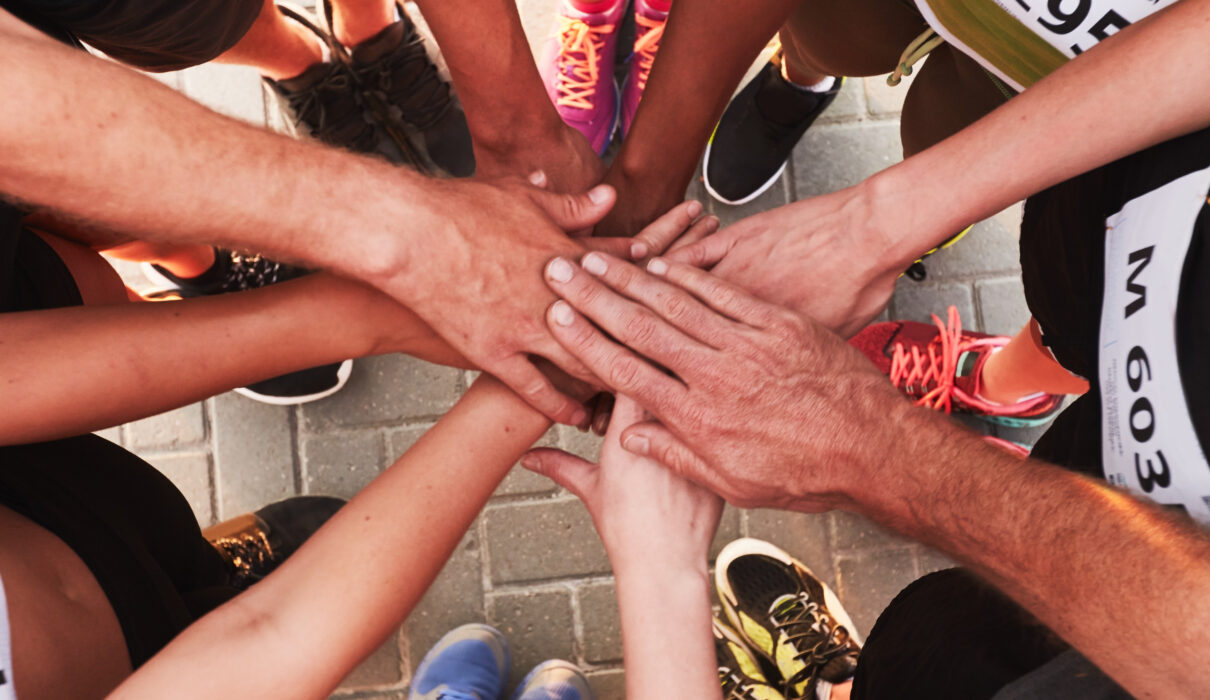Both in sports and in life in general, it is necessary to have a humble attitude. Therefore, in this article we will talk about how athletes should practice this value.
Humility is one of the most important values in sport. Whether in victory or defeat, we cannot allow our ego to tarnish our performance. Therefore, within psychological work, it is important to enhance this virtue.
A modest attitude is something that should be cultivated every day. Although it is only seen in major competitions, the truth is that it is present in training and in the personal life of the athlete. This means that whoever is humble in sport is also humble outside of it. Keep reading and learn more about how to start working on this quality.
What is humility in sport?
The Royal Academy of the Language (RAE) defines humility as the ” virtue that consists of knowing one’s own limitations and weaknesses , and acting in accordance with this knowledge . “
To understand it better: a humble person knows that he has defects and virtues , just like everyone else. He also does not believe himself to be above anyone, because, even if he is good at something, he knows that there are many other things that he does not master. Specific examples of humble behavior in sports are the following:
- Do not underestimate your opponent when you win.
- Accept criticism as messages to improve.
- Speak politely about other athletes and coaches.
- Work as a team and don’t think you’re the most important player.
- Don’t take success for granted , but stick with it until the end.
- Do not react with anger or envy in defeat, but accept it with sportsmanship.
- Prepare for each competition meticulously, regardless of the level of the opponent.
How is humility applied in sport?
The power of sportsmanship is not just knowing the definition; it involves knowing how to apply this value in the different areas in which the athlete is immersed. Below, we will look at them one by one.
With the opponents
Being humble is a fundamental virtue in managing competitive results, whether positive or negative. It is imperative not to succumb to emotions to prevent what happens on the field from being tarnished by unsportsmanlike gestures.
One of the objectives of sports schools is to teach children positive attitudes , such as how to deal with results. This principle is based on understanding that humility is closely linked to other values, such as respect in sport, camaraderie and tolerance . The sooner these ideals are assimilated, the faster they will be integrated into the daily repertoire of behaviour.
With coaches and other professionals in the area
It is important to be humble not only among peers, but also with authority figures such as coaches and other professionals. It is crucial to accept the scope of each specialist’s work and refrain from intruding by believing that one has more knowledge.
Letting coaches do their work and not questioning their decisions exemplifies the humble athlete. On the other hand, when someone tries to put themselves above the experts, it not only shows a lack of respect , but also increases the risk of injury due to overconfidence.
With the public and the press
Another aspect of sport in which humility must be shown is the way we deal with those who are indirectly involved, such as the public and the press. Specifically, in the professional field, the relationship with these two factors can be complicated, but many conflicts could be resolved with a change of attitude.
In this context, we must learn to give due weight to the opinions of others , which may or may not coincide with our own. If a difference arises, it is essential to handle it without taking it personally.
Problems with the public or the media mostly occur when your words are taken as an attack on personal pride . If the interpretation were changed, they would certainly not provoke an intense emotional reaction .
Within the team
This is the last context in which humility influences sport, especially in team disciplines. As we have explained, modesty applies to all of the athlete’s interactions, and we cannot overlook his or her relationship with teammates.
One challenge facing coaches is the so-called “ ego management within the dressing room”. The need of some players to excel clashes with the principle of equality within the team, and if the coach does not possess the necessary skills, group cohesion and integrity will be threatened.
According to a study by the European University of Madrid , coaches, apart from technical knowledge, should have other resources to optimize collective performance . These include those listed below:
- Leadership skills
- Human Resources Management
- Interpersonal communication skills
- Establishment of common sports projects
- Being able to create an adequate motivational climate
Be humble and you will cultivate a very valuable quality
One of the functions of sport that is sometimes forgotten is its educational function. Physical exercise gives us the opportunity to acquire virtues that we can apply to better performance and relationships with the people around us.
The sooner motivation is given and the value of sporting humility is instilled, the sooner it will bear fruit. Therefore, the appropriate time is during childhood, at the same time that the youngest children are learning the technical aspect. However, it is never too late to start being humble. Try it and you will notice more calm within yourself and around you.


